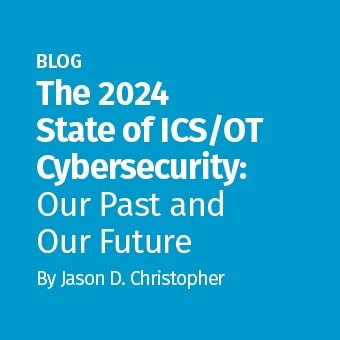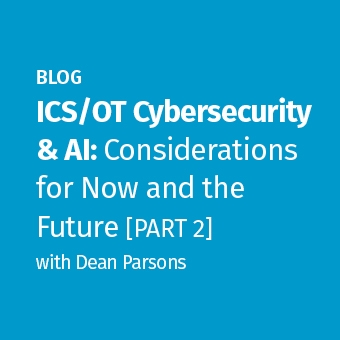For the last few years, cyber security has been a matter of concern for most organisations, independent of their size. Statistics point to an alarming yearly increase in threats on the part of groups or even individual “hackers” attacking our systems. During the Davos 2020 meeting, the participants of the World Economic Forum highlighted again, how harmful the effects of the cybercriminals’ activity could be, when attacks lead to disturbance of functioning of individual PCs or whole computer systems belonging to cities or global companies.
From the very beginning of the occurrence of events and incidents related to cyber threats, persons responsible for cyber security, companies’ directors and CEOs consider the problem and look for some solutions. Cyber security is not a product and it can’t be bought. It is a complex process, consisting of people – users, technology, including that being a part of a system cyber security, and procedures, which not only maintain functioning of the business, but also form a part of overall security. While analysing many cases of cyberattacks, it might seem, that such solutions are sufficient for providing cyber security, as well as monitoring and response to incidents. How could such solutions be facilitated? Is it worthwhile to focus on preventive or proactive activities that could prevent cyberattacks and “actively” effect on decisions made on protective measures? Such approach allows the person responsible for the cybersecurity system, e.g. CISO (Chief Information Security Officer) /CCO (Chief Cybersecurity Officer) for a quick modification of protective measures and elimination of vulnerabilities, weak points in the organisation’s system and avoiding of serious problems.
An important element of proactive functioning is the cooperation between organisations and companies, in which teams or specific individuals can exchange information and data on potential threats, weak points and vulnerabilities of the system, which could be used by hackers or information directly related to their activity. Many “good practices” and international standards point to the cooperation and exchange of information as the necessary elements of cyber security management. Both standard ISO/IEC 27001[1] and NIST 800-53[2], among others in management of incidents, emphasise the importance of information transfer in order to take up urgent activities aiming at minimising of the negative event or preventing from its escalation. But it is not only about the standards which prove, that such an approach works in everyday work. NIS[3] Directive concerning measures for a high common level of security of network and information systems across the EU also obliges the membership countries to begin cooperation involving, but not limited to national CERT’s level (Computer Emergency React Teams) and the exchange of information on threats. Operators of key services in individual sectors of economy, transportation, and energy can also develop their teams responsible for the cooperation and exchange of information. The most important purpose? To develop one common “front”, to co-operate for elimination of threats and to counteract spreading of cyberattacks and threats related to them, such as: ransomware and viruses. That is one of the purposes of the implemented law on the National Cybersecurity System[4], which is the facto an incorporation of the provisions of NIS Directive.
As a part of the national cybersecurity system, several institutions and agencies from various levels were specified, which shall take responsibility for in-country management of that issue. The key for their effective activity is the cooperation and exchange of information, including critical events. Each key operator is responsible for notification and providing information on such a critical event without undue delay, but not later, than within 24 hours. Does such an action have any sense and what is it for? As an example of the correct approach to exchanging of information on the incident and method of further sharing of such an information, we might cite the case of Norsk Hydro, one of the biggest manufacturers of aluminium in the world. At night 18th/19th of March 2019 the company became the victim of a cyberattack related to ransomware.[5] Immediately after the attack, employees were informed, that they shall not use the company’s IT equipment and shall not log in the office network. The relevant services, including Norwegian CERT were notified of the event, so were the co-operating companies. What was the meaning of such a procedure? Providing information on events taking place in an organisation offered a clear picture to its employees about the current condition of security. Is there any risk, may they work and if not, why? What should they do? All replies to those questions shall be provided directly after the incident has been identified and activities taken up shall be based on specific procedures, which shall be followed in such an event in the organisation. The example of Norsk Hydro proved, that the exchange of information and cooperation really worked in this company’s exceptional event, and communication on the whole event was unprecedented, in comparison to other events of that type.
Not everyone knows that such an information transmitted externally is analysed automatically by the relevant cyber security teams in each organisation, in which such teams are functioning. They check an attack vector, i.e. a method in which attacking cybercriminals got access to the organisation, which resources they used, e.g. they sent an email with malicious attachment to one of the employees. Such information leads to automatic recommendations in organisations: which things shall be paid attention to, if the access to some specific website should be blocked or if emails coming from a specific email address shall be blocked on the server. If this information had not been shared and published, the effectiveness of such an attack made by the same “hackers” could continue to be effective in other organizations. Being unaware of what happens, everybody would be equally susceptible to it. Is it worthwhile to get prepared for such an attack? Do the potential losses resulting from the attack e.g. image losses worth the cost of not sharing information with the others? It seems, that it’s worth to counteract in each of the cases, especially, if we don’t know the effects of a potential cyberattack, and who will suffer the most in result of it.
The next, very good example for the cooperation and sharing information is a network of organisations and institutions gathered around ISAC[6]. The concept of ISAC, Information Sharing and Analysis Center, was developed in response to the terrorist attacks in the USA in the 90-ties of the last century, at the order of the President, who required an Action and Cooperation Plan aiming at protection of critical infrastructure in future. Most often, this formula is based on public and private partnership, although other cooperation configurations may exist, as well, where co-operating organisations and companies focus on exchanging of information on threats. Moreover, they assist each other with an expert knowledge, and they work out and provide analyses on thematic areas specified by the partners.
One of the most popular cooperation centres in the sector of energy in the USA is E-ISAC, Electricity-ISAC, gathering most of the companies in the sector, as well as public administration and law enforcement authorities. This vigorous organisation delivers knowledge on safety, cybersecurity, and it also supports other organisations during incidents. In Europe, the equivalent of E-ISAC is European Energy - ISAC[7], which aims at offering the relevant support to organisations and companies in power generation sector by providing information on threats through MISP[8] - Malware Information Sharing Platform, and also by organising training sessions for end-users. E-ISAC, EE-ISAC and their Japan equivalent JP-ISAC concluded an agreement for co-operation, which was not without significance for the intensification of the effect of the exchange of information between ISAC’s from the same sector – power generation. The agreement began in 2018 in Las Vegas, the USA, pointed to sharing information between organisations as being crucial for the successful functioning of the agreement, while in turn, these organisations supported individual information exchange systems of each ISAC. In addition, each of the organisations may initiate projects or co-operate and support initiatives resulting in improvement and efficiency of security systems of all parties of the agreement.
Each sector of economy in each country may create its own cooperation centres, it is not complicated, remaining centres are always ready to assist their "colleagues.” The questions of purely practical cooperation– the exchange of information – are much more problematic. Especially in such areas, as safety and cybersecurity, there is a belief and practice, that ‘sensitive’ information shall not be distributed out of the company’s premises. On one part, it is justified, but ISAC centres are usually organised based on agreed-on statutes and regulations, including protection of the exchange of information and clauses referring to potential breaches of such agreements. However, despite such solutions, there are still some communication barriers.
Looking at the present system of information exchange and cooperation in various countries, sectors or organisations, it is difficult not to observe, that we are facing various systems which organise this exchange and co-operation, and various formal and non-formal rules. Regardless of whether it is a form of cooperation based on legal regulations or good practices – standards or voluntary association within an organisation, such as ISAC, there is one aim –the exchange of information and development of conditions for counteracting. This “prevention”, anticipation of actions of “hackers” or organised groups, trying to break our security in an organisation makes one of the key targets of this co-operation.
Which model is more efficient and worth joining or applying? Probably everyone can find some arguments in favour of one or another solution, but one should recall the most important thing, regardless of the chosen model of co-operation, the exchange of information at such dynamic changes in threats on the part of cybercriminals is, at the time being, the only and one of the most effective (or even the most effective) measures in hands of “the defenders.” What we exchange and how we do it are significant, and each person who shall try and check at least once how it all works, will become convinced. In the next updates of legal regulations, the subject of cooperation shall become one of the most important elements of the organisation of cyber security, even by the virtue of the organisation of functioning of companies. Not only are they concentrated in a specific sector, but they also co-operate with third parties in a form of deliveries or collection of goods. How should the problem of potential threats during the exchange of information, e.g. orders and commercial correspondence, be dealt with then? We can’t close the company and declare that we are not cooperating, as without cooperation, it becomes impossible to continue our business. Safety of deliveries, the so-called “supply/delivery chain” must be covered by the whole system of cooperation of the exchange of information, because it is in the interest of all participants of the system.
Probably, there are more such areas, for which the cooperation and exchange of information are crucial, it is worth to pay attention to that and take up every initiative that shall finally result in more efficient protection of the organisation.
Jaroslaw Sordyl – ICS Cybersecurity Consultant with SECONS IT/OT Consulting, Warsaw, Poland. Formerly Cybersecurity Director with Oil Transmission Operator and Deputy Director of Cybersecurity with Energy Transmission Operator where he was responsible for cybersecurity, management and planning with Poland’s national and international CERT teams.
[1] https://www.iso.org/standard/54534.html
[2] https://nvlpubs.nist.gov/nistpubs/SpecialPublications/NIST.SP.800-53r4.pdf
[3] Directive of the European Parliament and of the Council (EU) 2016/1148 dated 6th of July, 2016.
[4] Journal of Laws Dz.U. 2018 item 1560 – Law dated 5th of July, 2018 on the national cyber security system
[5] Ransomware – malware, which blocks access to files/data by encrypting them on the victim’s equipment. Unblocking takes place by filling up the correct combination of a decrypting key, which is provided by the attacker (but not always) after a ransom is paid.
[6] https://www.eisac.com [access 04.02.2020 r.]
[7] https://www.ee-isac.eu [access 04.02.2020 r.]
[8] https://www.misp-project.org – [acces 04.02.2020 r.]





.jpg)